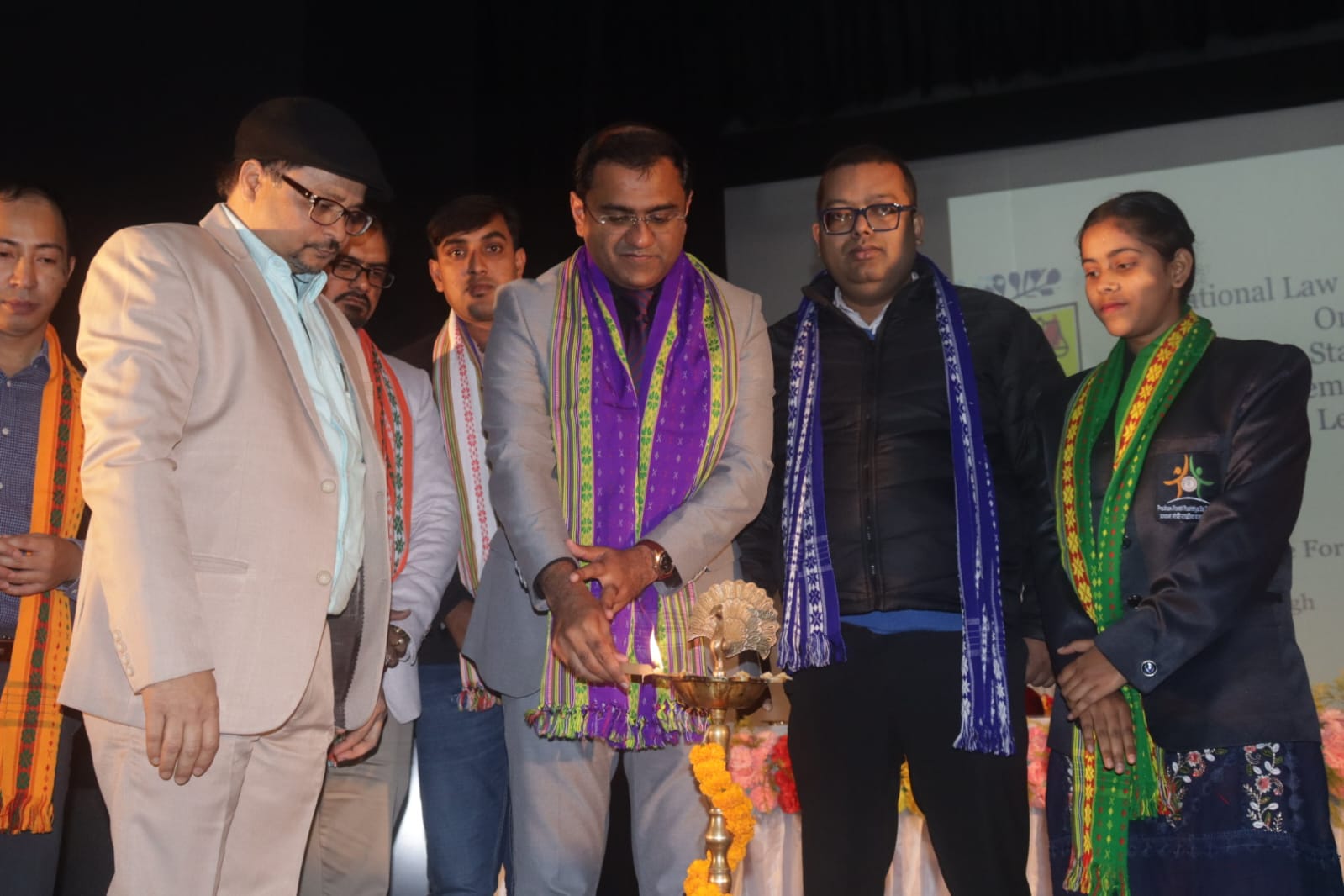Agartala , Jan 10, 2025, TRIPURATIMES Desk

Agartala Jan 10: Child marriage is a deeply rooted issue in India that impacts the lives of thousands of young girls. With some states showing higher rates than other, Tripura records 40.1 percent cases of child marriage, as per National Family Health Survey (NFHS 5.0).
The situation is exacerbated by social and cultural factors, including poverty, which forces many families to marry off their daughters at a young age. Various governmental and non-governmental initiatives aim to combat this issue, but challenges persist, especially in rural and remote regions.
The National Law University of Tripura, with the support of UNICEF, organized a State Multi-Stakeholder Dialogue on the Effective Implementation of Child Specific Legislations.
Held on Friday at the TJA Auditorium, the event brought together various stakeholders to address the critical issues related to child protection and legal frameworks.
Professor Dr Yogesh Pratap Singh, Vice-Chancellor, NLU Tripura in his address said, “Despite tremendous progress in almost all sectors, the issue of child marriage stands critical, even after 75 years of India’s independence”.
Providing the details of such cases in several districts across the state of Tripura Dr Singh highlighted the urgency of tackling this issue and the need for comprehensive measures to prevent child marriages.
He emphasized the importance of raising awareness among the general population about the negative impacts of child marriage on the health, education, and overall well-being of children.
While the figures presented by Dr Debasree Debnath, Centre Director Centre for Women and Child Rights (CWCR), the speakers stressed on the necessity for concerted efforts from all sectors, including policymakers, law enforcement agencies, educators, and community leaders, to effectively implement child-specific legislations.
Saju Vaheed A, DM and Collector, Dhalai district in his address spoke about the ‘Role of State-Specific Initiatives in Combating Child Marriage and Balika Manch’.
Sharing his on- field experiences, the DM said, “Although the state has seen improvements in education and child welfare, cultural norms and economic pressures continue to contribute to the high rate of child marriages, particularly in more conservative rural areas”.
“Despite various laws and awareness campaigns including introduction of Balika Manch, aimed at reducing child marriage, several factors other than the issues of poverty and societal pressure remain significant challenges for many families in the state”, he said.
He added, “The increase has been most pronounced in Tripura, by 7%. It should be kept in view that Tripura (33.1% in NFHS-4 and 40.1% in NFHS-5) and Assam (30.8% in NFHS-4 and 31.8% in NFHS-5) have a larger incidence of child marriage than national level in both rounds”.
The Prohibition of Child Marriage Act (2006) is one such law that seeks to prevent child marriages, although enforcement remains a challenge, said the Dhalai DM.
At the end of the session, Jyotsna Akhtar, child marriage rescuer who has been rewarded with prestigious Pradhan Mantri Rashtriya Bal Puruskar in the social service category, shared her story with the attendees.
The schoolgirl from South Tripura, currently studying at standard XI has been tirelessly working towards transforming lives of several girls through Balika Manch.
The speakers expressed hope that the discussions from this dialogue will play a crucial role in raising awareness among the common masses and address the challenges posed by child marriage and other child-specific issues.